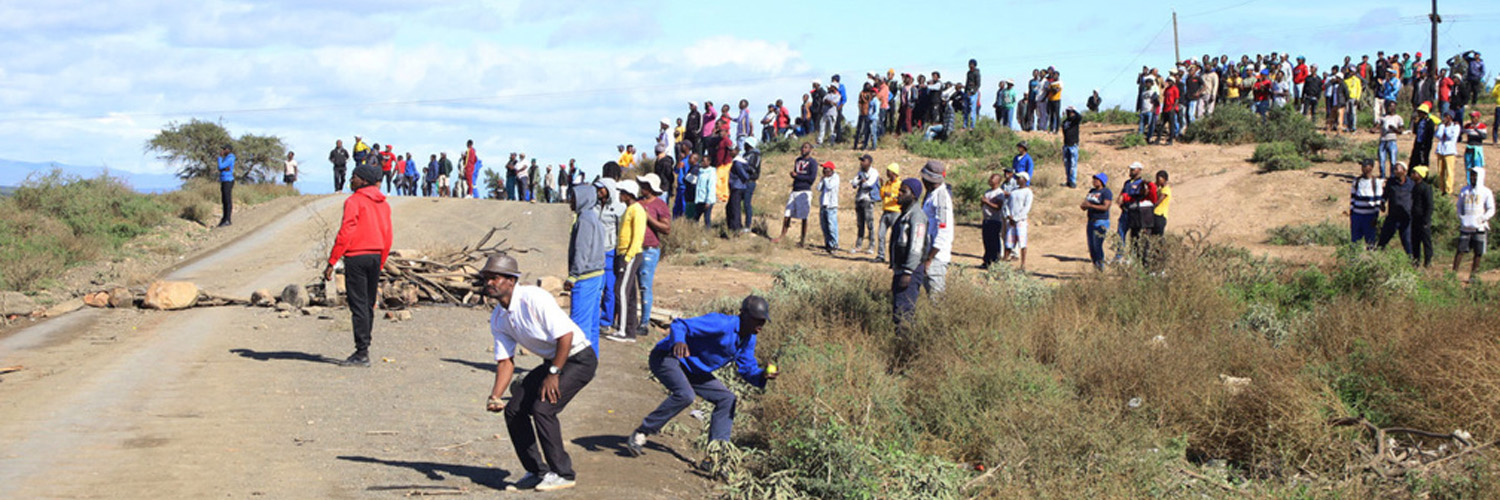
CWAO IN THE NEWS
Strike activity drops to levels last seen in 2014
09/02/2023
Publication: Moneyweb
Author: Ciaran Ryan

A study by the Casual Workers Advice Office shows strike activity falling to levels last seen in 2014, most of them related to wages and related issues.
Its Strike Barometer 2022 shows there were 86 strikes in 2022, of which 51 were wage-related.
The strike total for 2022 is 27% lower than 2020 and 48% lower than 2018.
The second-highest cause of strikes in 2022 (19 out of a total 86) related to the demand for permanent employment.
For instance, food inflation, which makes up a significant part of a worker’s budget, is currently running at 13.4% as at January 2023. Prices of basic food items like maize meal increased by 36.5% and bread flour by 29.3%!!With the R2.23 per hour increase, even a worker who works eight hours a day cannot even afford to buy an extra loaf of daily bread. EPWP workers who receive a miserable 62 cents per hour increase, will not be able to purchase anything much at all.
Many EPWP workers have been deployed for the past 14 years as casual street cleaning workers in townships, hired for just two days a week each, keeping the townships clean in the absence of a municipal workforce which has been whittled away by austerity budgets over the years. This means that in reality, there are many EPWP workers who earn just R856 per month for doing this valuable work.
The contention by employer organisations that the current R2.23 hourly increase to the minimum amounts to a 9.62% increase. The employer outcry about the latest minimum wage increase, which the Department of Labour also refers to as ‘whopping’ is nothing but a further political attack on the working class.
The small increase to the minimum wage reflects a weak and indifferent labour movement, not interested in organising low-wage or casual workers. The DEL is even less interested, to the point of being unable to furnish the National Minimum Wage Commission with enforcement statistics. Casual and short-term contract workers simply get fired or not hired again if they ask to be paid the minimum wage. The low minimum wage serves instead to drive down the wages of all other workers.
CWAO notes that the commercial farming sector reported record profits during Covid-19 yet have the gall to complain about having to pay farm workers an extra R2.23 as of today. As the 2022 farm workers' strike in the Eastern Cape's Sundays River Valley noted, many farm workers either get paid below the minimum wage or if they are paid the minimum wage, have their hours reduced by the commercial farmer employer.
The minimum wage has also never taken into account the apartheid wage gap which still needs to be closed 29 years after the end of apartheid. Once again, the very low increases to the minimum wages, in particular that of the EPWP, and the persistent low wages in the country, illustrate that the South African economy is still very much based on black cheap labour. The origins of the South African economy and its development were premised on the securing and exploitation of black cheap labour which took the form of slave labour, indentured labour, migrant labour and now in the 21st century taking the form of precarious and casualised labour.
The ANC government has been at the centre of securing the necessary supply of cheap labour through its labour laws that allow for an official poverty minimum wage and labour brokers. Its macro-economic policies facilitate the redistribution of economicwealth from the poor to the rich. Have we not seen the decline in company tax from 48% under apartheid in 1994 to the current rate of 27% under the ANC government?
It is absurd that in the context of billions of rands having been wasted since 1994 on repayment of the apartheid debt, Arms Deal corruption, the Gupta-related corruption, and the current Covid-19 tender corruption and Eskom and other SOE related corruption, that ordinary workers who support entire extended families on one very low wage, should accept an increase to the minimum wage of R2.23 per hour - barely enough if the workers are allocated 8 hours of work to buy an extra loaf of bread today!
It is obscene that billions are squandered while workers continue to live in poverty, unable to support their families. The ANC government is well aware that a living wage, as determined and demanded by the masses in struggle is the only minimum wage to offer workers in South Africa. [ends]
